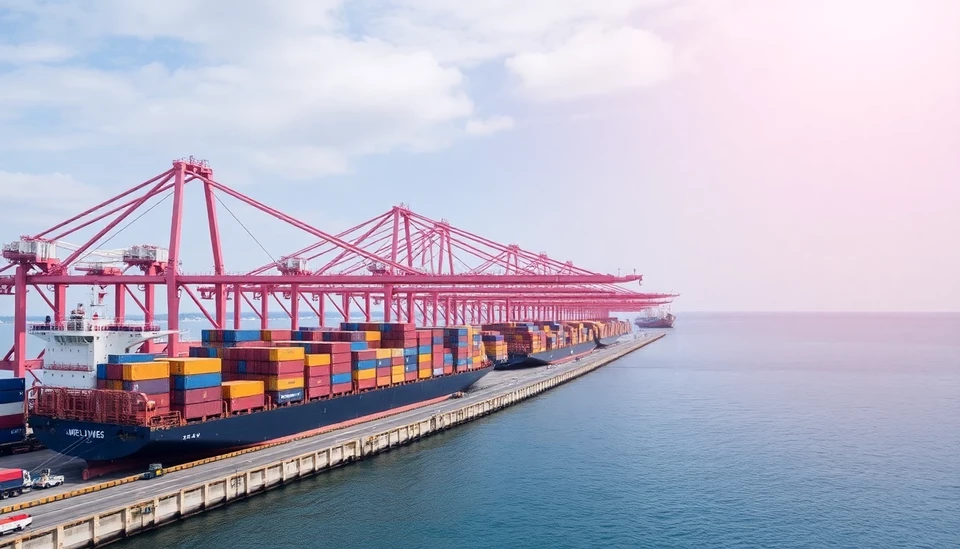
The global supply chain is experiencing a notable downturn as cargo volumes have plummeted, sparking concerns among analysts and stakeholders. Recent data indicates a steep decline in shipping activity, which many attribute to rising uncertainties in international trade and geopolitical tensions.
Trade routes that were once bustling with activity are now witnessing a stark reduction in cargo traffic. Major shipping companies are reporting significant drops in container throughput, with some ports seeing declines as high as 30% compared to previous years. This contraction is raising alarms about the resilience of the global supply chain, which has been under pressure for several years due to disruptions caused by the pandemic and ongoing geopolitical conflicts.
Analysts point to a combination of factors contributing to this sudden slump. Foremost among these are mounting inflationary pressures, which have led to decreased consumer spending and a resulting drop in demand for imported goods. Additionally, uncertainties surrounding trade policies, particularly as various nations adjust their tariffs and regulations, are creating a climate of unpredictability that discourages shipping and logistics investments.
In the wake of this situation, many shipping lines have been forced to recalibrate their operations. Several carriers have announced temporary service reductions to combat the excess capacity in their fleets. These measures include cutting back on sailings and postponing new vessel acquisitions, which reflects the growing need to adapt to the shifting market dynamics. Such changes could lead to increased freight rates in the long term if overall demand begins to rebound.
Furthermore, port authorities are grappling with the implications of reduced cargo volumes, as diminished traffic can lead to revenue shortfalls that affect infrastructure funding. Ports that heavily relied on import-export activities are now strategizing on how to enhance their operational efficiencies and attract new business amid these challenging times.
As the supply chain navigates this turbulent period, experts are encouraging stakeholders to remain vigilant and adaptive. The need for diversification of trade routes and stronger partnerships between shipping companies and ports will become increasingly crucial. Additionally, leveraging technology and data analytics may help to enhance visibility and responsiveness in the supply chain, potentially mitigating some of the adverse effects of future downturns.
Despite the current challenges, there seems to be a glimmer of hope in the horizon. Should geopolitical tensions ease and the global economy stabilize, analysts believe that there could be a resurgence in cargo volumes. However, until then, the industry may need to brace itself for continued volatility and uncertainty, as stakeholders strive to navigate these complex dynamics in an ever-evolving global market.
In conclusion, the decline in cargo volumes presents both challenges and opportunities for the global supply chain sector. The road ahead is uncertain, but adaptability, collaboration, and innovation will be key factors in overcoming the obstacles that lie ahead.
#SupplyChain #TradeWar #ShippingIndustry #GlobalTrade #Logistics #Freight #Economy #CargoDecline #Geopolitics
Author: Daniel Foster




